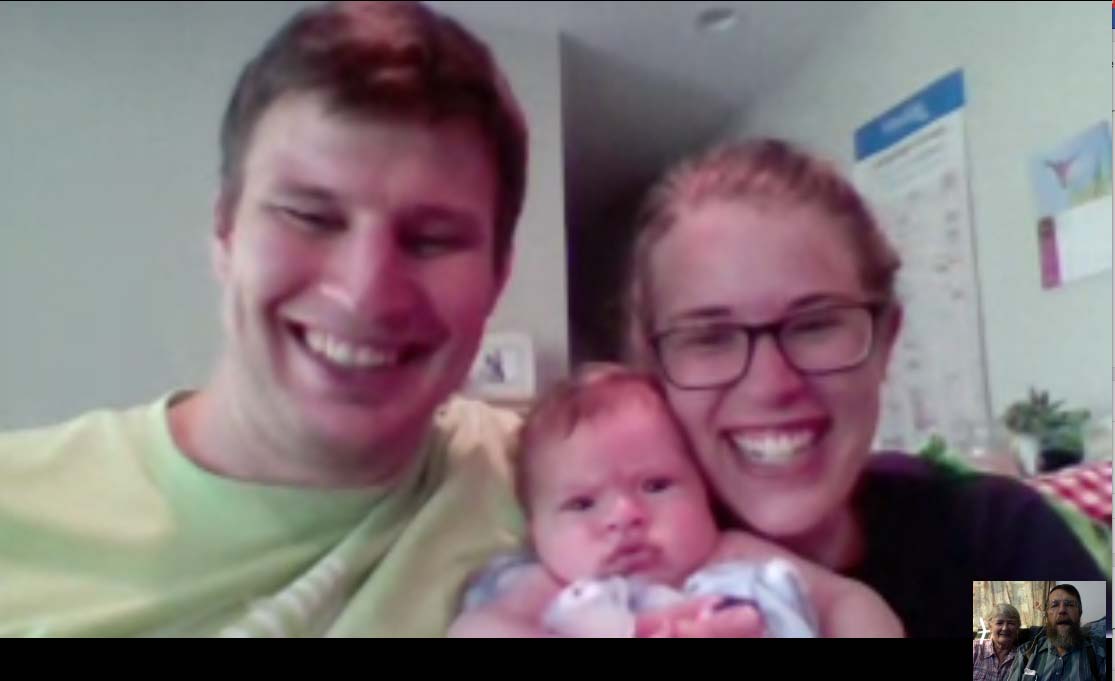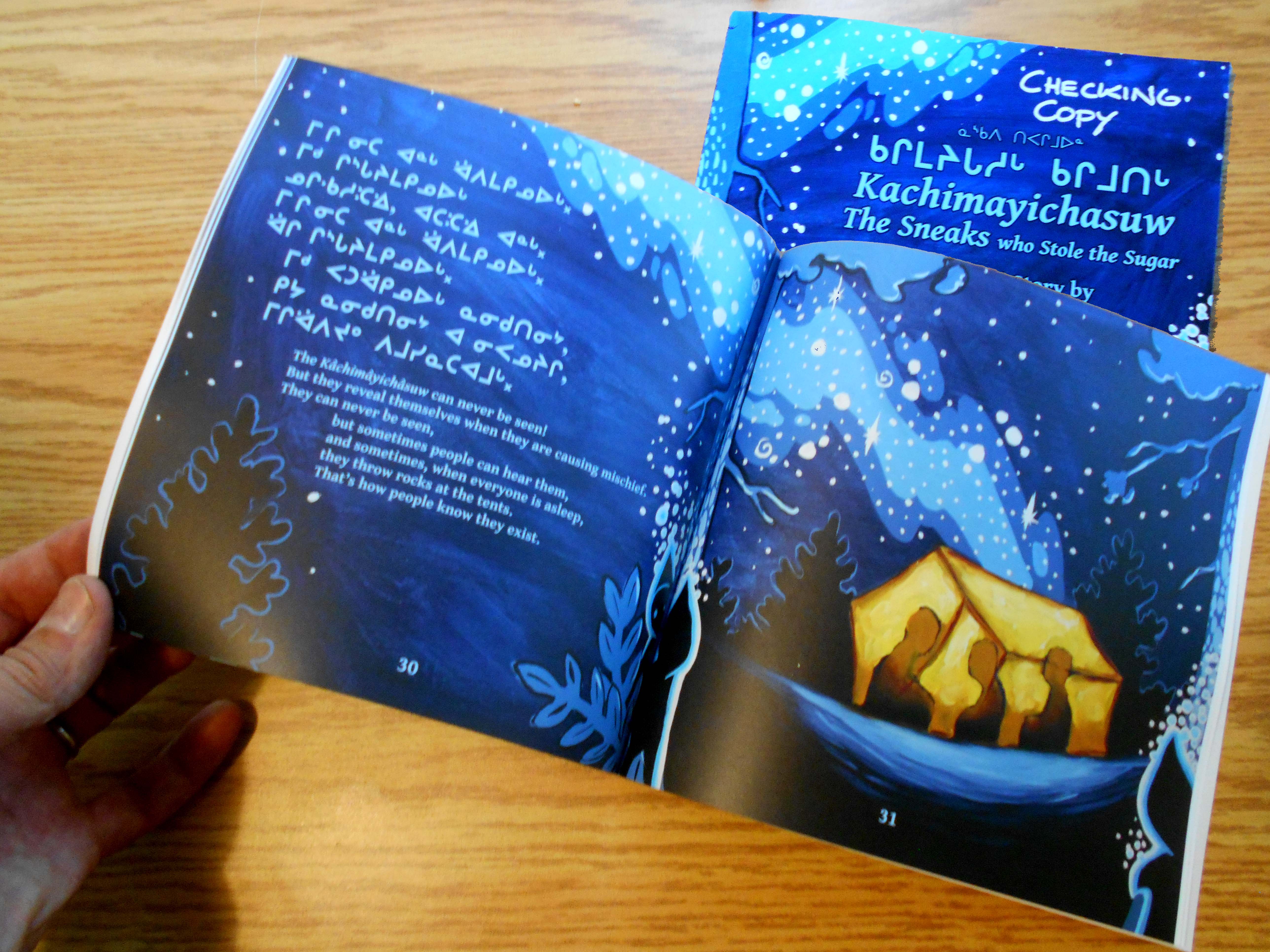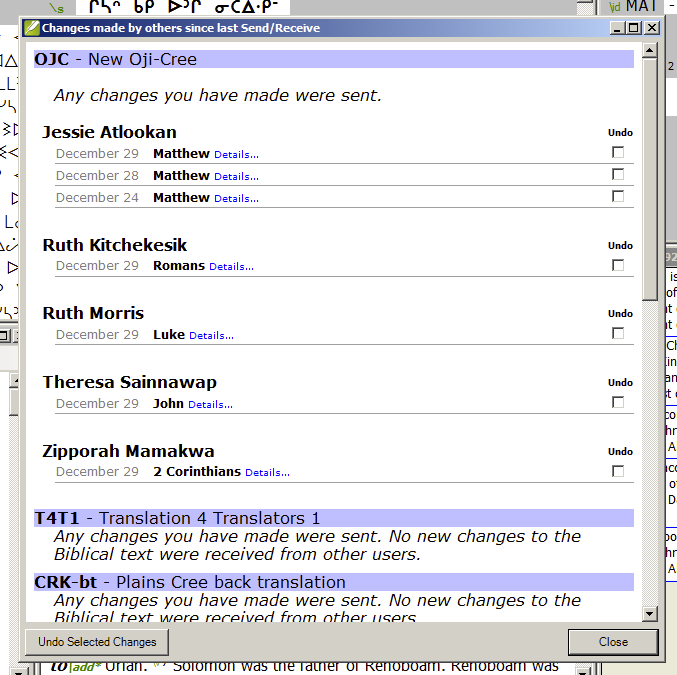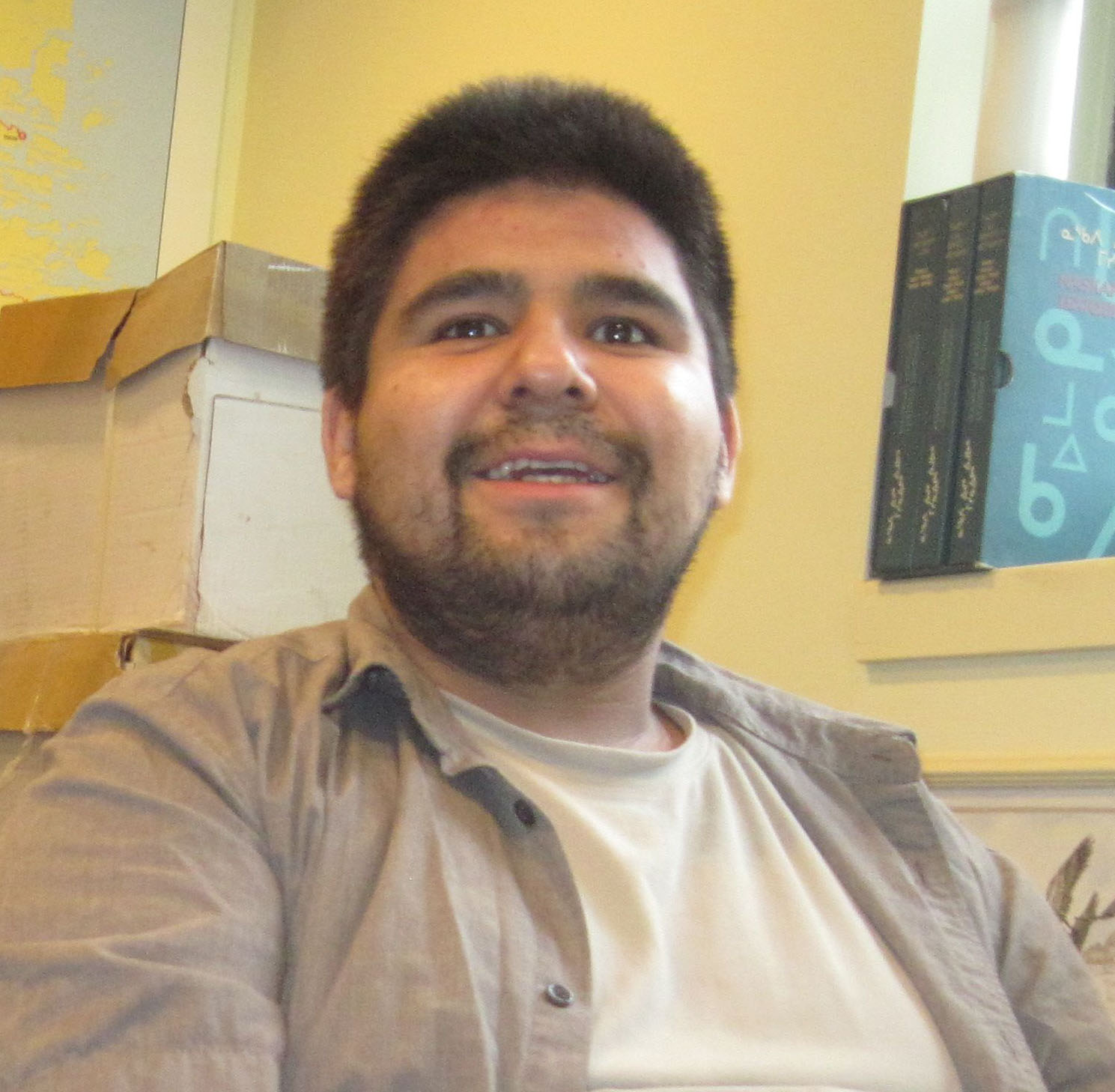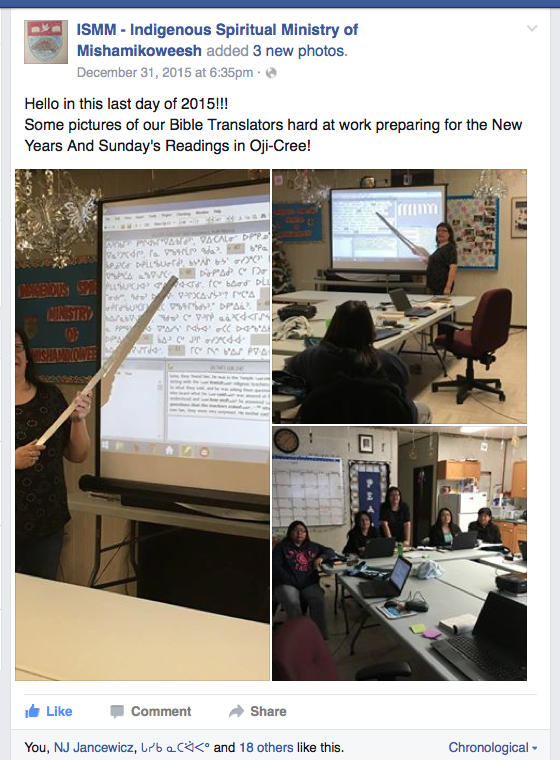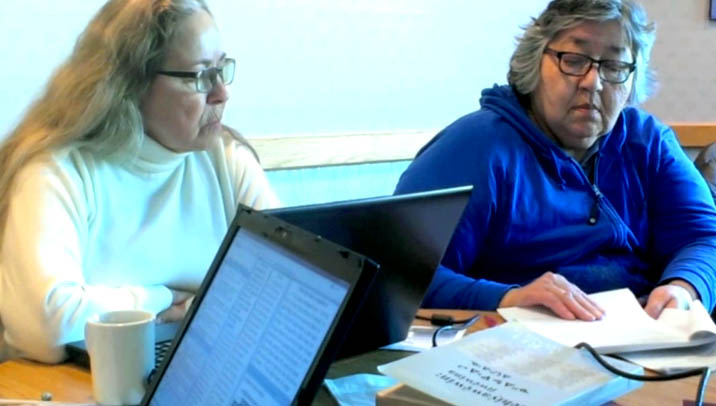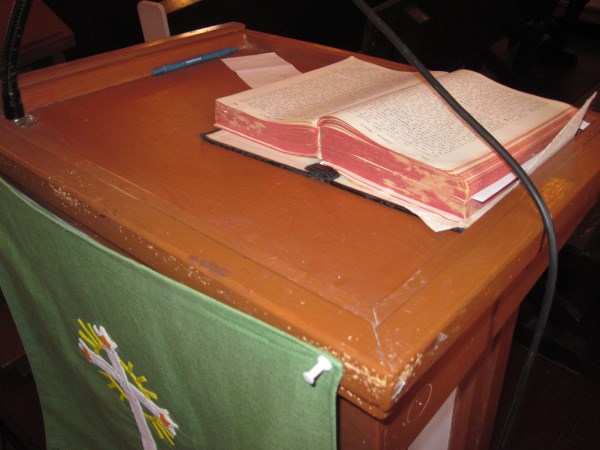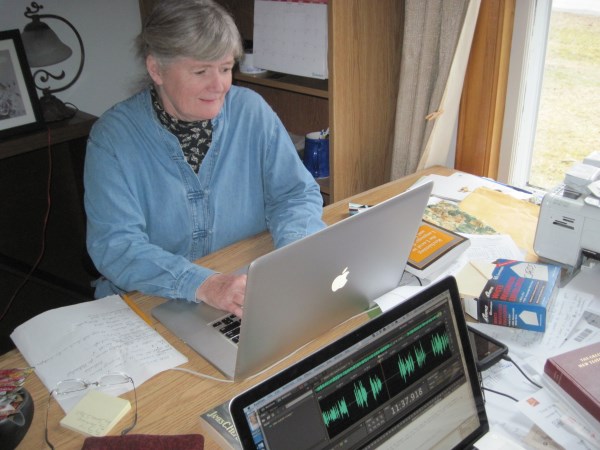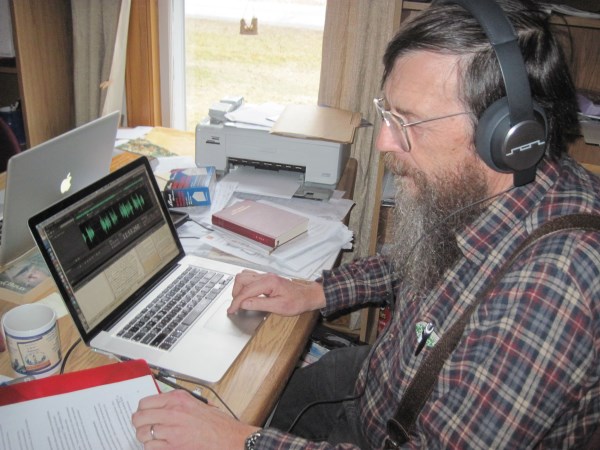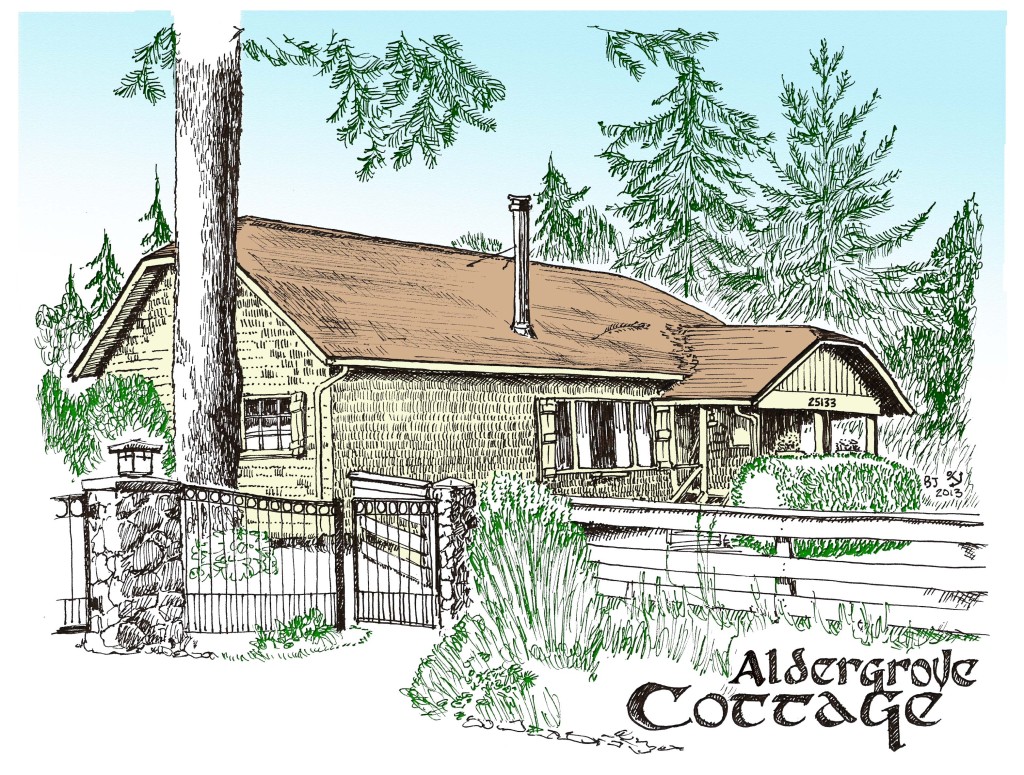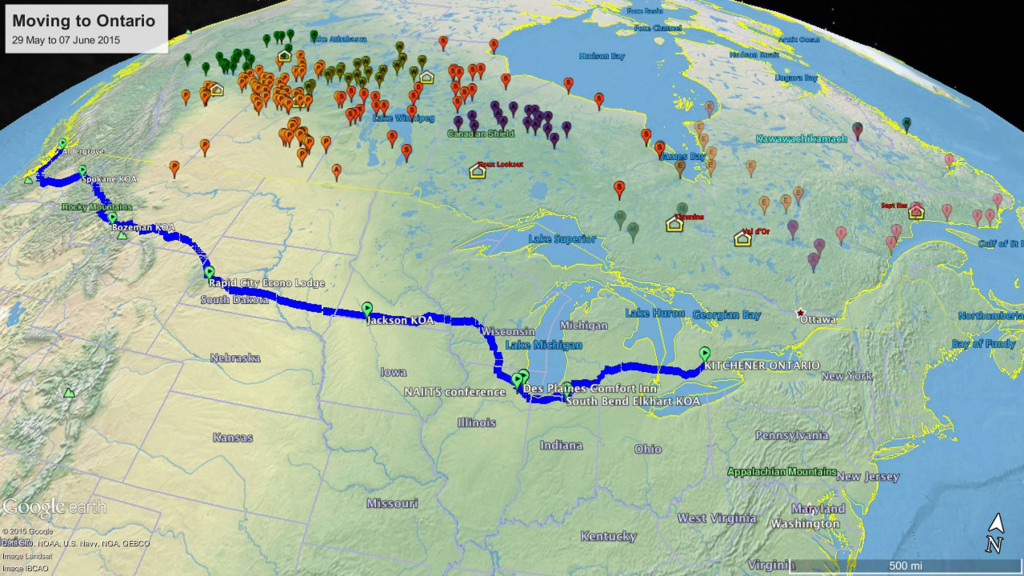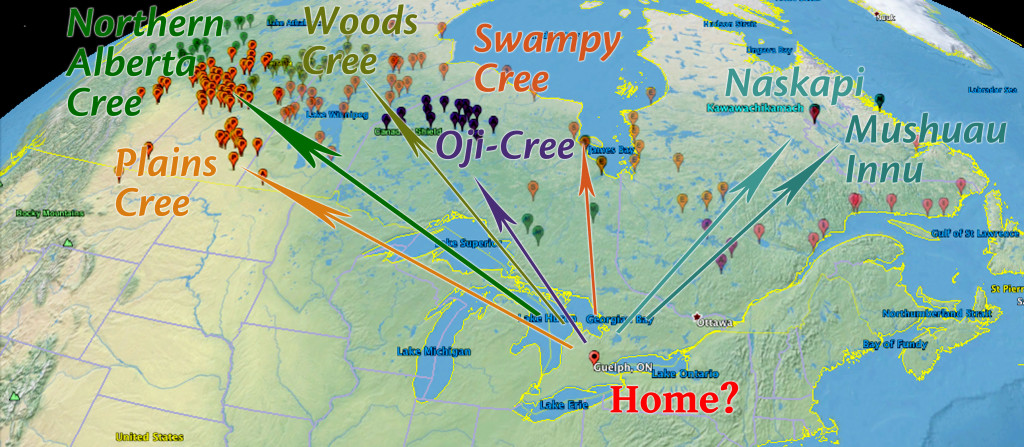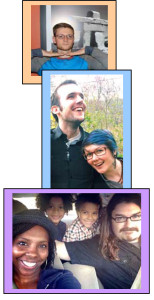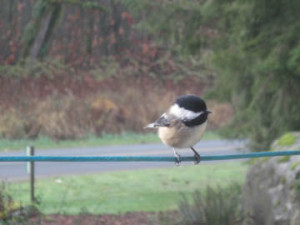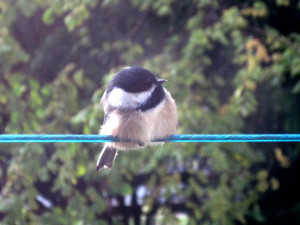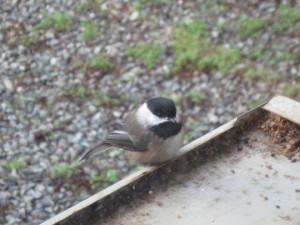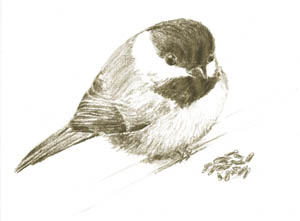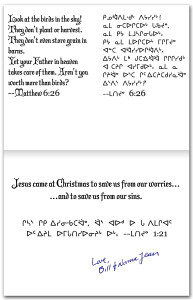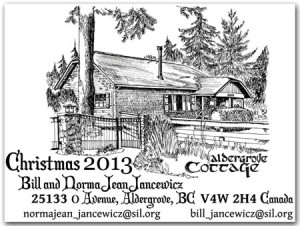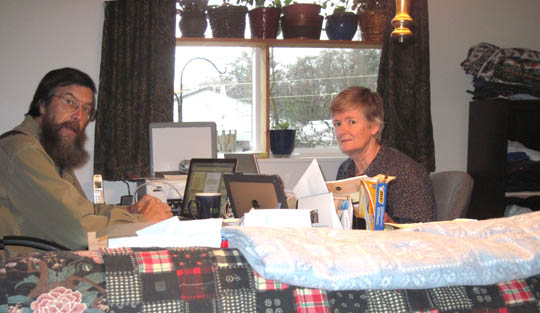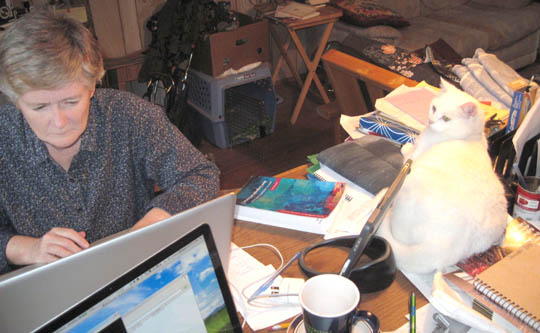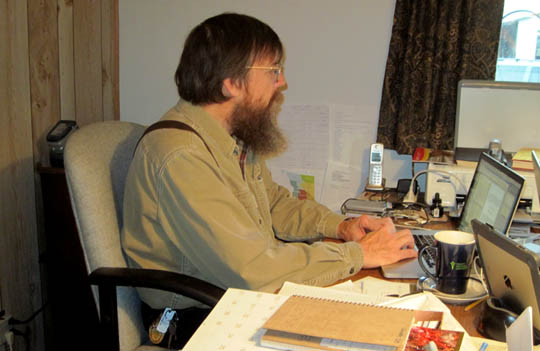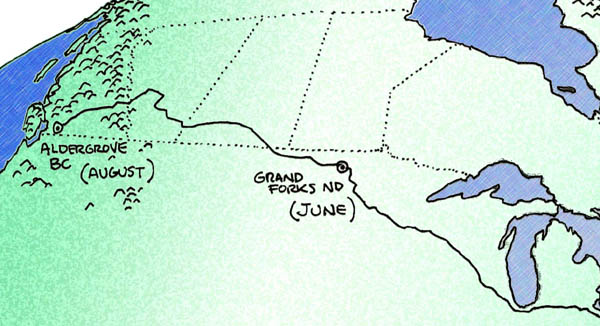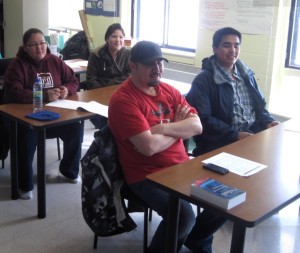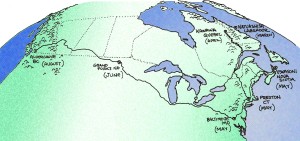Our Dear Partners,
When the First Nations Bible Translation Capacity-Building Gathering was held at Prince Albert in 2014, there were several projects that were prioritized, including work on Oji-Cree, Cree and Naskapi Bible translation projects, along with activities focused on building the capacity of the local communities to accomplish these translation goals. At the second Gathering at Toronto in 2016 these priorities were repeated and expanded to include other First Nations language communities with Bible translation needs.
This “Translation Brief” talks about a key component that God is using to help address these needs: the Next Generation of Bible translation facilitators and team members!
“Jesus told them, ‘The harvest is plentiful, but the workers are few. Ask the Lord of the harvest, therefore, to send out workers into his harvest field.’ ” –Luke 10:2
Is there a linguist in the house?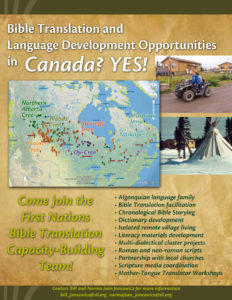
More and more around the world, the speakers of minority languages themselves are gaining the skills they need to translate the Bible into their own mother tongue. But communities still need someone to walk with them and help them to gain confidence in those skills, and to assist in the many technical and academic ways that are needed when a community chooses to begin a Bible Translation project.
In our experience there are many things that can happen at once, and having trained Bible translation facilitator team working on site for an extended period is essential for training, coordination, mentoring and helping, and building a network of relationships that is vital to the success of the project. Even in situations where there is a mature mother tongue translation team like in the Naskapi community, there are a myriad of ongoing tasks that a facilitator with linguistics and language development training and experience can make easier.
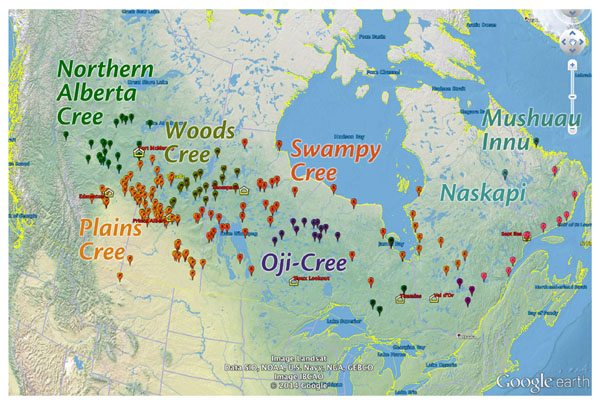 We want to highlight for you some of these new teams who are soon to be headed north to work alongside our First Nations friends who are committed to their own translation projects, so that you get to know them better as we are, and can pray for them.
We want to highlight for you some of these new teams who are soon to be headed north to work alongside our First Nations friends who are committed to their own translation projects, so that you get to know them better as we are, and can pray for them.
Matthew and Caitlin Windsor
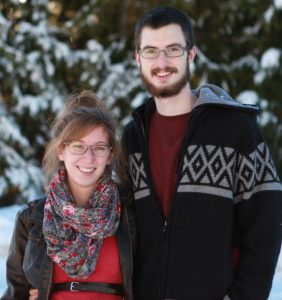
Cait & Matt Windsor
Matthew and Caitlin are from Vancouver Island, British Columbia, Canada. We met them while we were living in Aldergrove, BC and Norma Jean was following her graduate coursework from 2013-2015 at the Trinity Western University campus in Langley BC. Matthew was enrolled at CanIL, the Canadian Institute of Linguistics, also on the Trinity Western campus in Langley, in preparation for service in Bible Translation. During their time there, we shared with the students about the work that we do with the Naskapi translation project in Quebec, and the need for Bible Translation in other First Nations communities.
Caitlin and Matthew responded to God’s call on their lives and were accepted to Wycliffe Bible Translators of Canada in December 2014, and in the spring of 2015 we received confirmation that they would work with First Nations communities in northern Canada.

Hazel Windsor
They visited the Naskapi community with us during a working trip in support of the translation team in the fall of 2015, and are now trusting God to raise the financial and prayer support team that they will need before they move to northern Canada.
In January their first child was born, Hazel! She is a very precious blessing and she already brings much joy to their home!
Martin and Alice Reed

Martin & Alice Reed
Martin and Alice are newlyweds, just having been married on March 12, 2016. They met while training for Wycliffe Bible translation ministry at the Graduate Institute of Applied Linguistics (GIAL) in Dallas, they are united by a shared passion for crossing language and culture barriers to make God’s Word accessible to all. They were both accepted into Wycliffe USA in the fall of 2015, and have been approved to join the translation teams working with First Nations communities in northern Canada.
Alice and Martin also must complete raising their support like Caitlin and Matt, but they have an additional hurdle to negotiate: as US citizens, they must satisfy Canadian immigration regulations before being allowed to work in northern Canada.
Martin and Alice will be joining us on our next working trip to Kawawachikamach to visit the translation team and get acquainted with the Naskapi community.
Linguistics Internships
The founder of Wycliffe Bible Translators, William Cameron Townsend, had not only established a curriculum of linguistics training for new teams preparing to serve in minority language communities, but also a component called “Jungle Camp” in Chiapas, Mexico, where teams would be trained to live in remote, cross-cultural situations. Other versions of this orientation training were also established through the years to suit the region and the culture. We still see this as an important step for new Bible translation facilitation teams.

Kawawachikamach
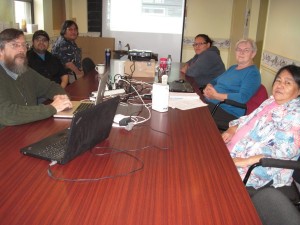
some members of the Naskapi translation team
Both the Windsors and the Reeds will be spending an internship period in service to the Naskapi language project in their remote northern First Nations community of Kawawachikamach. The Naskapi language team and leadership has agreed to host this internship period and help the new teams to get a start on language and culture learning with them, while the new teams assist the mother tongue translation staff with their current translation and language program, all the while being supported and mentored by Bill and Norma Jean. This will provide these new teams with practical experience before they take on their long-term assignment in another First Nations language program somewhere else in the north. Both new teams hope to begin their respective internships sometime in 2017, first one team and then the other.
A day-to-day work routine with the Naskapi team will also help the Naskapi to be successful and accelerate in their own Old Testament translation goals, and in training new Naskapi language specialists as well.
Meg Billingsley
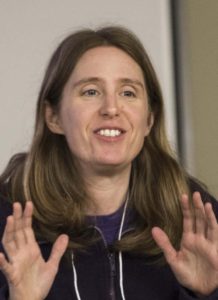
Meg Billingsley
Meg is not a stranger to First Nations Bible Translation in Canada. She joined Wycliffe Bible Translators and was assigned to the Plains Cree translation project around 2002, working from Prince Albert Sasksatchewan. She took an assignment with the Mi’kmaq translation project at Sydney Nova Scotia around 2008, where she has served as facilitator until this year. This month she begins her training to become a translation consultant, and she will be moving to Ontario to begin applying those skills alongside First Nations mother tongue translators, beginning with the first draft translation being produced by the new Oji-Cree translation project.
A translation consultant is someone who works with translation teams in a variety of languages to support translators in their work and help them to produce a translation which clearly and accurately communicates the meaning of Scripture in ways that sound natural in the language.
As she gains experience, she will be mentored by senior translation consultants. We expect that she will do much of her work from a distance and make short term visits into the language communities for checking sessions. While she is part of the “Next Generation”, she comes to the work in Northern Canada with nearly 15 years of experience working with First Nations languages, and we are happy to have her along!
Ben Wukasch

Ben Wukasch
Ben Wukasch has expressed his interest and hopes to be involved in what God is doing in bringing the Scriptures into the heart languages of First Nations people in Canada. He graduated from Princeton in the States, where he majored in Environmental Engineering and minored in Linguistics and Latin American Studies. He was involved in both mission work in Latin America and wrote his thesis on Appropriate Technology and Peru.
Ben was involved in a project where the Quechua speaking residents of a small village on the outskirts of a city problem-solved and decided on a project for their community. He then studied Biblical Greek and Hebrew at the University of Toronto, and later on completed a Master of Applied Linguistics and Exegesis (MLE) degree at Trinity Western with CanIL.
He looks forward to someday joining what God is already at work doing in Canada, among its most ancient citizens, and he appreciates your prayers as he seeks God’s will for his life.
The Canadian Bible Society has worked along side Wycliffe in several of the indigenous translation projects over the years. They too have recently recruited additional staff to serve in translation projects in the north:
Catherine Aldred-Shull
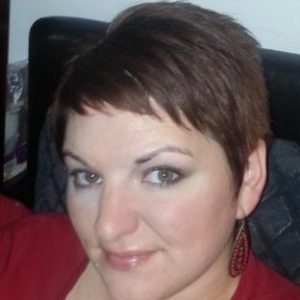
Catherine Aldred-Shull
Catherine is the daughter of Ray Aldred (Th.D., Wycliffe College) a Cree from the Swan River Band in Alberta. Catherine received her BA in Biblical Studies from Columbia Bible College in 2010 and Masters in Religious Studies & Bible Translation from McGill University in 2013. Earlier this month she accepted a position in the Bible Society as “Translation Officer Trainee”.
She has a long association with the Canadian Bible Society, particularly with the Montreal District which supported her studies in linguistics at McGill University. She has also worked with the Society’s Translation Team on indigenous languages. She expects to be working with some of the Cree language communities in Saskatchewan.
Bible translation is the responsibility of the whole church. We certainly can’t do it alone. Nor can just Wycliffe, or the Bible Society, or the indigenous church or language community. We need each other and we certainly rejoice that God is calling a new generation of field workers, facilitators and specialists to work alongside the First Nations people that God is calling to Himself.
Prayer Requests:
Pray for Matthew and Caitlin Windsor and little Hazel:
- that God would grant them patience and that they would stay rooted in Jesus as they wait and prepare in Comox
- that God would continue to connect them with the people He has identified to contribute financially and prayerfully to the translation work
- that they would be a blessing to their families and their church family during their time on Vancouver Island
- Get current prayer requests and connect with the Windsors here: https://thewindsorsupnorth.com/
Pray for Martin and Alice Reed:
- Washington Visit: They will be in the Seattle and Portland areas 7/27-8/2 to share about their Wycliffe ministry. Pray for strong connections and new partners.
- Church Interview: The missions committee at Alice’s home church will interview them on 7/24. May God use it to form an even deeper partnership.
- Immigration: Pray for the application process to continue smoothly.
- Get current prayer requests and connect with the Reeds here: https://www.wycliffe.org/partner/reed
Pray for Meg Billingsley:
- for all the work to be done in finishing things up with the Mi’kmaq translation, with packing and moving, and with beginning her translation consultant training. Pray for the Lord’s peace and empowering in the midst of it all.
- for favor with immigration workers and government officials as she travels to her training in South Asia later this month, for safety in travels and health and protection while she’s there. Most of all that the Lord would be at work in and through all her interactions and relationships wherever she goes.
- that the Lord will lead her to the right apartment in southern Ontario, and that she will finish her work among the Mi’kmaq well.
Pray for Ben Wukasch:
- that God would make His direction clear to Ben as he seeks to serve in First Nations Bible Translation ministry
- that Ben would be faithful day-by-day in the ways God is using him now in ESL work and welcoming newcomers to Canada
Pray for Catherine Aldred-Shull
- that her transition to her new position working with the Canadian Bible Society will go smoothly, including any moves and orientation
- that God would guide her as she starts the 3-year United Bible Society (UBS) Translation Officer training cycle this September
- that God would lead her to areas of engagement in the Bible translation task in Canada that would be fulfilling and effective
And finally, please pray for all of us, that our interactions and work would be a blessing to each other and to the First Nations and indigenous language communities that God has called us to serve.
Thank you for your prayers for us all.
Serving with you,
Bill and Norma Jean
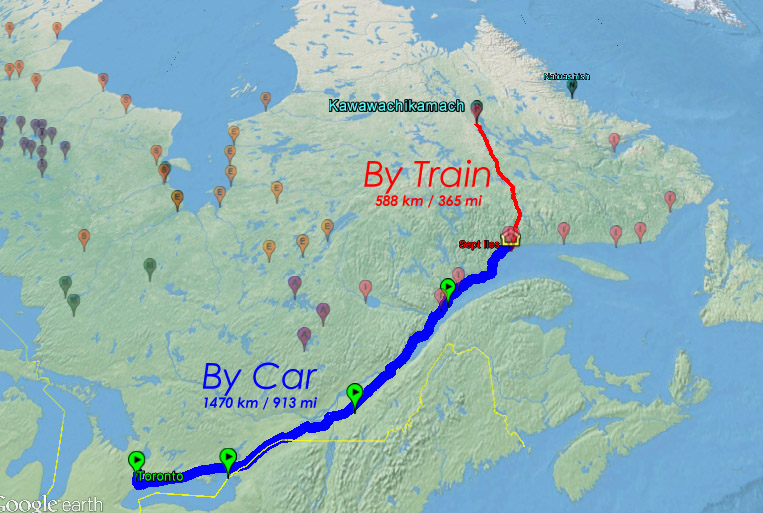 As many of you know from our previous Translation Briefs, the Naskapi Bible Translation project has been not only the inspiration and motivation for other First Nations communities to begin their own translation projects, but the Naskapi project is also a place where Next Generation Bible translation facilitators can gain practical experience serving a project as Linguistics Interns. Two new young teams recently starting their service to other First Nations translation projects, the Reeds and the Windsors, have completed their internships at Kawawachikamach with the Naskapi.
As many of you know from our previous Translation Briefs, the Naskapi Bible Translation project has been not only the inspiration and motivation for other First Nations communities to begin their own translation projects, but the Naskapi project is also a place where Next Generation Bible translation facilitators can gain practical experience serving a project as Linguistics Interns. Two new young teams recently starting their service to other First Nations translation projects, the Reeds and the Windsors, have completed their internships at Kawawachikamach with the Naskapi.
